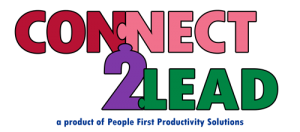The Simple Thing You Can Do for Instant Leadership Improvement
Leaders look beyond "thank you" and "nice job."
Leaders aim to create a sense of belonging and a genuine connection. They know that doing this one thing will help them to be more effective.
This one thing goes beyond managing today's work. We've all heard that managers should inspect what they expect. That's about meeting immediate goals.
Leaders, looking longer term, should measure what they treasure. Managers have metrics and expectations. Leaders demonstrate behaviors that convey what they value and why.
When they do, effective leaders are helping others to feel good about the work they do and the contributions they make. This boosts employee engagement which, in turn, causes employees to apply additional discretionary effort and work more productively.
It's a win/win situation. But it begins with a leader's choice to display authentic gratitude.
Go Beyond Appreciation and Develop Gratitude for Leadership Improvement
Some dictionaries use the words "appreciation" and "gratitude" as synonyms. The definition of each word, though, reveals an important nuance. It's one we shouldn't overlook as we think about improving our leadership effectiveness.
Appreciation is thankful recognition; the act of estimating the qualities of things and giving them their proper value or worth.
Gratitude is the quality of being thankful or deeply pleased; an indebtedness to reciprocate something of value or worth.
Oftentimes, gratitude is what comes from accumulated appreciation. It's more profound because it builds over time. It's a deep-seeded feeling instead of a momentary reaction. It's a desire to do something in return, not merely noticing that something has been done.
Leadership Improvement Can Be Measured by 3 Actions that Demonstrate Gratitude
When you appreciate someone, you express it with a "thank you" or with praise. You acknowledge or give credit when you are showing appreciation. The feeling of appreciation is often fleeting and, as a result, the outward signs of appreciation are usually expedient.
A wellspring of gratitude will cause you to trust others more. It will cause you to want to reward them and to celebrate their contributions. Trusting, rewarding and celebrating are the outward expressions of a leader's gratitude.
REWARD To recompense for merit, service, hardship or achievement t angible gift vs. verbal only (recognition), above & beyond for above & beyond
CELEBRATE To observe, commemorate, honor or glorify with festivity s pecial occasion, communal, uplifting, surprises, meant to invoke good feeling
TRUST To have confidence in, depend on or rely upon; to show faith in i nner circle access, letting guard down, affirming connection
Gratitude, because of these three behavioral responses, makes leaders more effective. There are three (out of 30) behaviors of exemplary leaders that stem from gratitude. These behaviors come from the evidence-based framework of leadership known as The Leadership Challenge®, a body of work by Jim Kouzes and Barry Posner.
To show gratitude, simply increase the frequency of these three leadership behaviors:
- I make it a point to let people know about my confidence in their abilities. Trust
- I find ways to celebrate accomplishments. Celebrate
- I make sure that people are creatively rewarded for their contributions to the success of projects. Reward
Your Leadership Improvement Starts Now with 5 Reflections to Help You Show Gratitude
If you're looking for a quick start, try this exercise. It will help you move from appreciation to gratitude by prompting you to reflect on what's most meaningful to you.
Do it in writing so you can refer back to this in those times when the day-to-day routines deplete your reserves. An "attitude of gratitude" may give you an extra measure of resilience when you need it most.
- 5 things about yourself that you are proud of and most grateful for.
- 3 life events you are most grateful for (at least in retrospect).
- 2 things about each person on your team you are grateful for.
- 5 things about your workplace and work life you are grateful for.
- 5 personal life things or people you are most grateful for.
Push yourself when you create your list. Go beyond recent events that trigger appreciation. Look for patterns and depth of feelings to get to a place of profound gratitude.
Bonus activity: Find ways to demonstrate your trust to the people on your list. Show them your gratitude by celebrating and rewarding them more often.
As you're working on your own development as a leader, check out these bonus resources:
Deb Calvert is a certified Executive Coach, Certified Master with The Leadership Challenge® and architect of leadership development programs for nearly 100 organizations. She helps leaders at every level discover and achieve their leadership goals. Deb is the founder of People First Productivity Solutions, building organizational strength by putting people first since 2006.
